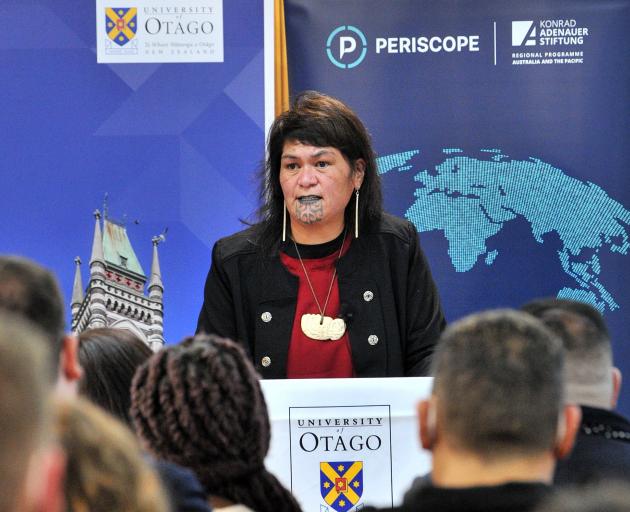
While this country does not actually have that technology, the United States is keen to get all countries which can launch objects into space - such as New Zealand - to agree to its proposal, and Prime Minister Jacinda Ardern was asked to commit New Zealand to it when she visited the US last month.
Ms Mahuta announced New Zealand’s agreement in a keynote speech last night to open the annual Foreign Policy School, which this year is examining the theme of space foreign policy and law.
A Russian anti-satellite missile test last November, which created a debris cloud that threatened to damage the International Space Station, was the catalyst for the move.
"Our Government has been very clear - these tests are irresponsible," Ms Mahuta said.
"We will not conduct destructive direct-ascent anti-satellite missile testing. We do not have that capability and neither are we looking to develop it."
While New Zealand’s signature might seem purely symbolic, it contributed towards the development of rules and norms to govern space, she said.
Without that, there was the possibility of misperception and misunderstanding and "it is a small step from there to perceptions of threat, rising tension and miscalculation".
"As an international community, we need to find and agree ways to facilitate beneficial space operations while guarding against the misperception of malign intent."
Ms Mahuta, a self-confessed "Trekkie", said discussing space policy was a world away from what she envisaged doing when she first became an MP.
"This is really an indication of how innovative New Zealand is, the fact that we are contributing to areas of innovation like this only bodes well for a country like ours."
New Zealand’s position as a regional leader and as a country with launch capability meant it could represent the views of many other countries about matters concerning space.
"New Zealand is a proximate voice for the Pacific and while we can’t speak for them we can certainly speak from a Pacific perspective."
The most important issue for Pacific nations, as expressed at the recent Commonwealth Heads of Government meeting, was climate change, and Ms Mahuta noted that tracking climate change was one of many applications for space-based technology.
Ms Mahuta is to attend the Pacific Island Forum in a fortnight.
Earlier yesterday, Ms Mahuta criticised China’s approach to Hong Kong on the second anniversary of a heavy-handed security law.
New Zealand and China have been taking verbal swipes at one another, with the Chinese Embassy yesterday criticising Prime Minister Jacinda Ardern’s remarks about the country at the Nato world leaders summit.
It coincides with the visit by Chinese President Xi Jinping to Hong Kong to mark 25 years since Britain returned the city to China.
It is Mr Xi’s first trip out of mainland China in more than two years.
In a statement yesterday, Ms Mahuta noted another anniversary for the city: two years since the introduction of the National Security Law and said New Zealand
was concerned by the "steady erosion of rights, freedoms, and autonomy" in Hong Kong as a result.
The law imposed lengthy jail terms for acts of secession, subversion, terrorism or collusion with foreign forces, and has resulted in at least 189 arrests.
"Since the NSL was enacted, we have witnessed the suppression of freedom of speech and assembly, the stifling of political opposition, and a significantly narrowed space for media and civil society organisations," Ms Mahuta said.
"Aotearoa New Zealand calls on Hong Kong and the People’s Republic of China to restore and respect the rights and freedoms of the people of Hong Kong, as well as the high degree of autonomy guaranteed to Hong Kong until 2047 under the Sino-British joint declaration."
Ms Ardern’s statements to Nato had targeted Russian disinformation and that country’s war on Ukraine but she also criticised China, which she said had become "more assertive and more willing to challenge international rules and norms".
"Here, we must respond to the actions we see. We must stand firm on the rules-based order, call for diplomatic engagement and speak out against human rights abuses at all times when and where we see them."
It drew a rebuke from the Chinese Embassy in Wellington, which said the comments were "unhelpful, regrettable and wrong".
- Additional reporting RNZ












